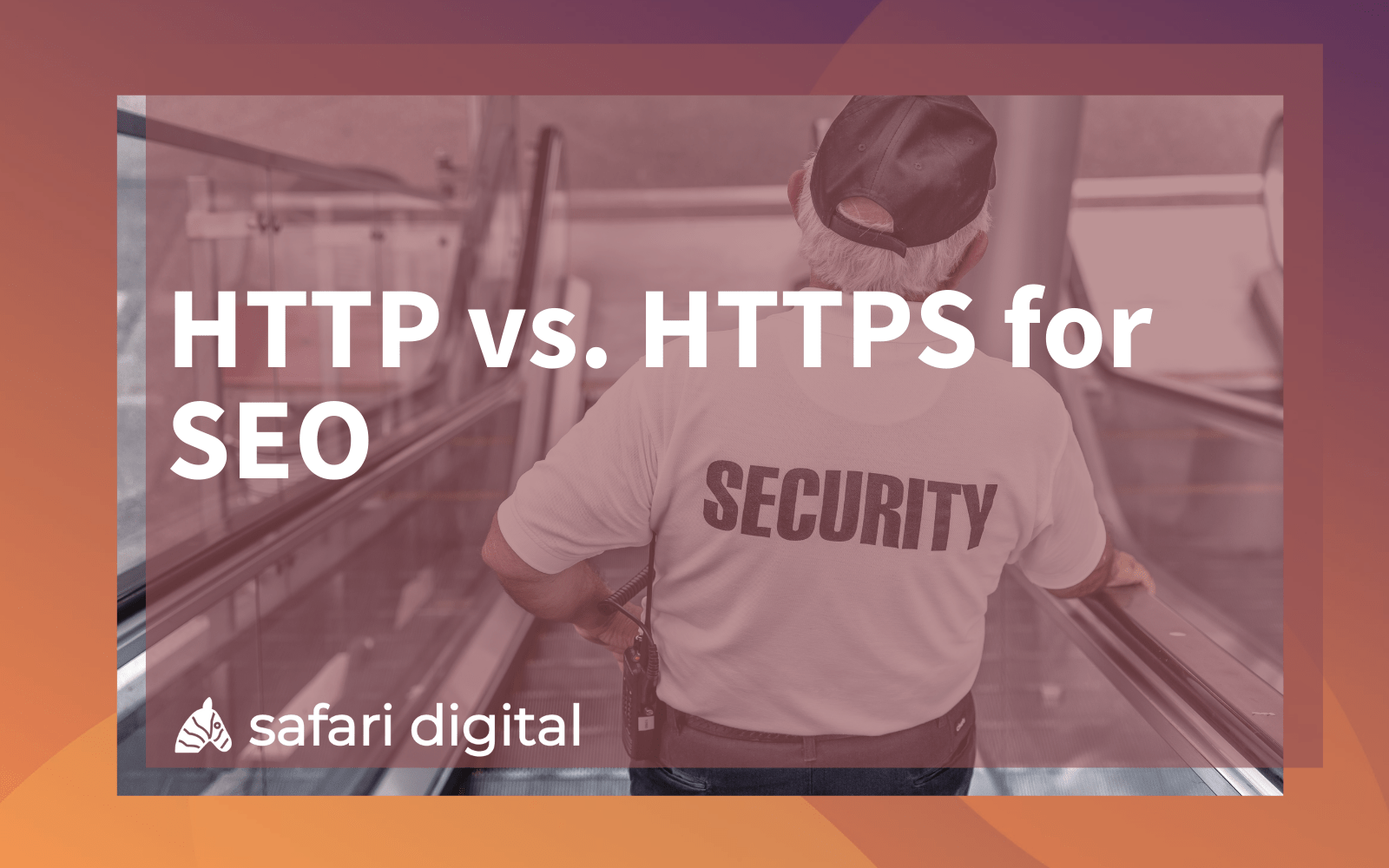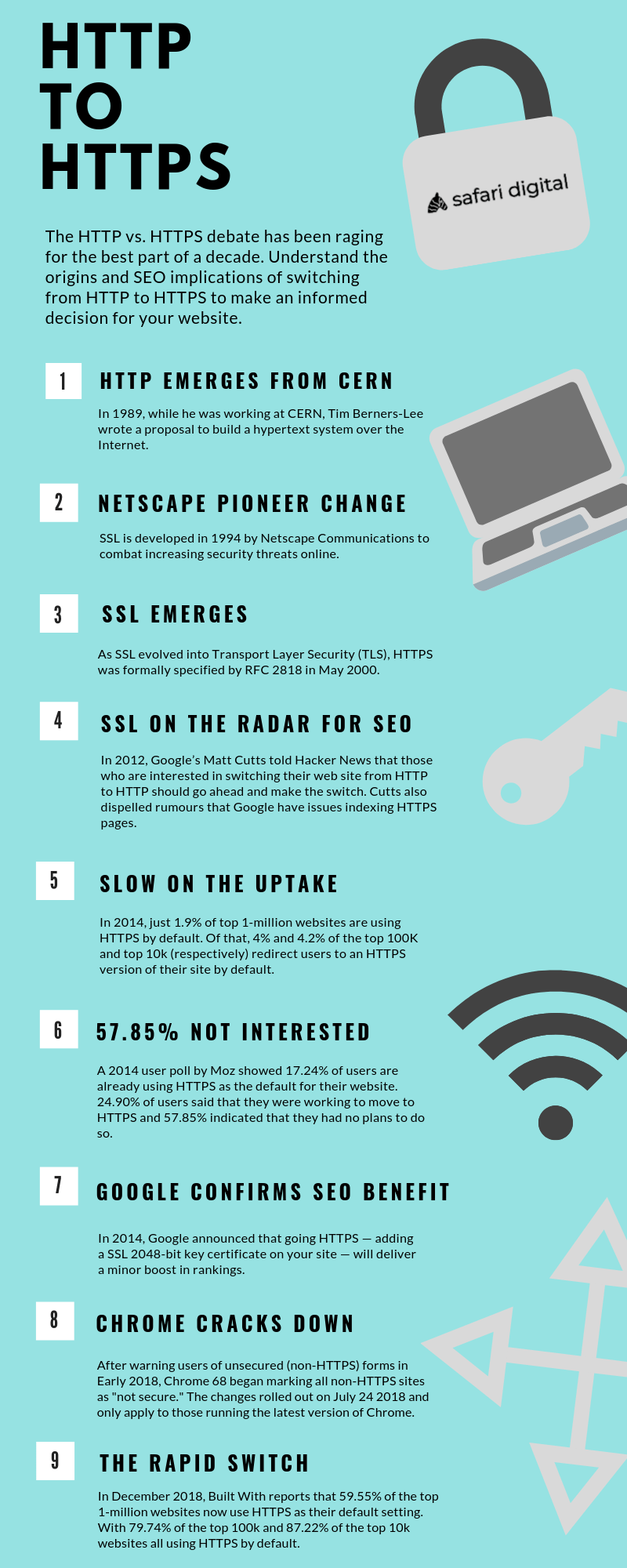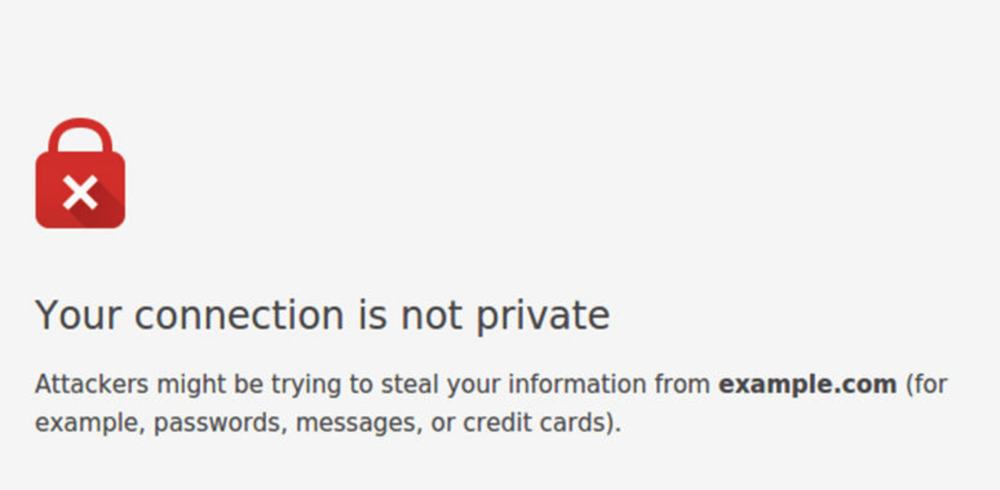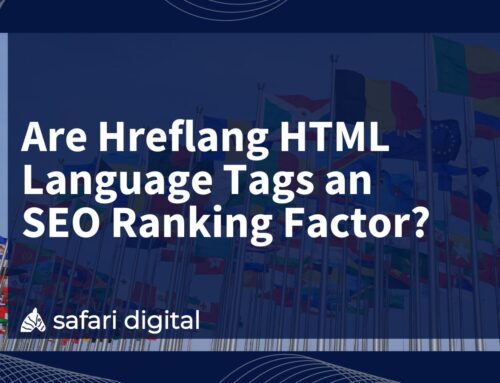
According to the latest research from August 2023, 83.8% of websites currently use SSL certificates to enact the HTTPS safety protocol on their website.
As Google continues to ramp up its efforts to keep the web safe and secure, let’s take a look at the importance of SSL certificates for SEO, why you should ensure your website has a forced HTTP to HTTPS redirect in place, and what you can do to keep in Google’s good graces.
In order to understand the reason behind Google’s decision, it’s important to ask a few questions; why does Google favour HTTPS for SEO rankings? And what are the benefits of using HTTPS for SEO? It’s important to address the concerns regarding SEO and changing an HTTP website to HTTPS.
Difference between HTTP and HTTPS
HTTP or ‘Hypertext Transfer Protocol’ is a system for transmitting and receiving information over the internet. It is an “application layer protocol”; the primary focus of it being how the information is presented to the user, regardless of how it gets there.
HTTPS adds an extra layer of security to a website. It allows confidential information (like credit card numbers and personal data) to be exchanged securely without the risk of unauthorised access.
HTTPS uses the same protocols as HTTP; just with an extra layer of security as it works in conjunction with SSL (Secure Sockets Layer) to transport the data safely, hence the ‘S’.
What HTTPS Means for Webmasters
When installed on a website, the SSL certificate allows the HTTPS protocol to ensure a secure connection from a web server to a browser.
To acquire a secure and protected connection, HTTPS uses three different layers for protection. Encryption of the data being transferred for security; Data Integrity means that the information can’t and won’t be interrupted or changed during transmission and users are also shown through an Authentication process to protect against attacks.
A recent report found that 43% of cyber-attacks are targeting small businesses, with an attack occurring almost every 40 seconds.
The secure connection through these three layers allows for complete protection for your website’s users. It mitigates the opportunity for anyone/anything to try to attack or steal information being transmitted, like login details, banking information and identification particulars. This way, sensitive and private information is hidden away from other users on the internet.
In a nutshell, having an HTTPS website will ensure security for both your website AND its users. But the question still remains – how does this extra website security impact HTTPS SEO?

Getting in Google’s Good Graces
Google loves a trustworthy and certified site, so naturally, there are going to be some advantages with this added security. In 2014, Google announced that going HTTPS for SEO — adding an SSL 2048-bit key certificate on your site — will provide you a minor ranking boost to websites.
While Google works out the changes to your website, you will inevitably hit some rankings turbulence during the changeover. Don’t be surprised to see a temporary drop in rankings, impressions, and clicks across your website. It’s nothing to worry about, things will return to normal (and beyond) once the migration is completed and Google sorts out the differences.
In order to check the impact carefully and ensure that the change in rankings is only a short-term fluctuation, you need to have some pre-migration data at hand. Before the switch, make sure to check rankings daily in Google Analytics for the first week to get a complete picture of where your website normally stands.
To better understand and reconcile any ranking changes, you can group your keyword rankings according to their respective landing pages. Keyword groups will help you track down the reason for any unusual fluctuations by identifying flat spots on your website.

HTTPS for SEO Rankings
A ranking boost is an obvious SEO benefit for webmasters, as it goes hand in hand with Google’s confirmed small ranking boost of sites using HTTPS for SEO. It’s not an easy ranking signal to look at alone, but it is definitely something that will continue to hold value over time.
Google has also stated that although it may not make a huge overall ranking impact, it will act as a tie-breaker of sorts. This has further been backed up by correlations found through Moz.
Basically, this means that you and your main competitor could be tied equals in terms of speed, content quality, links, on-site SEO and off-site SEO. But if your website is HTTPS enabled and your competitors is HTTP, Google is more likely to rank yours ahead of your competitor’s.
HTTPS for Traffic
With higher rankings, comes more traffic. Click-through rate is an obvious benefit associated with increased SERP visibility. By way of an example, agencies that rank for ‘SEO services Brisbane‘ in the top 100 positions all use an SSL certificate on their website – this is not a coincidence.
When traffic goes through an HTTPS site, the secure referral data is preserved. But when traffic goes through an HTTP site it is taken away and looks as if it is direct with no referral. If you’re into Google Analytics you will notice this benefit of having the security of the referring domain preserved.
HTTPS for Conversions
Users are becoming increasingly aware of the safety benefits associated with using HTTPS-enabled websites. In 2018, Google ramped up its efforts by serving Chrome users with a warning message when visiting websites that do not have an SSL certificate.
While a user may not understand the technicalities behind a secure connection, they do understandably want a safe and secure transmission when providing personal information and data.
In December 2018, Built With reports that 59.55% of the top 1-million websites now use HTTPS as their default setting. With 79.74% of the top 100k and 87.22% of the top 10k websites all using HTTPS by default.
This is a significant change from 4 years earlier when just 1.9% of top 1-million websites are using HTTPS by default. Of that, 4% and 4.2% of the top 100K and top 10k (respectively) redirect users to an HTTPS version of their site.
this will only continue to grow as Google Chrome starts to blatantly point out and label a URL in red when it is an HTTP site as insecure.
Navigating the Migration HTTPS for SEO
Google has been subtly encouraging webmasters to adopt HTTPS since 2012 and is continuing to reward those with a security certificate in place.
When making the switch, it is crucial to make a few important steps to make sure your traffic doesn’t suffer. If the process isn’t completed properly and there is duplicate content or internal linking errors, it may lead to lower rankings and SEO penalties. Google has come out and suggested the following tips to ensure a safe and successful migration:
While Google continues to encourage webmasters to switch from HTTP to HTTPS, underestimating the challenge can cause damage far greater than the benefits. You must plan each step of the migration and test thoroughly for a smooth landing.
Conclusion
Although currently it is proving to be just a minor ranking benefit, the signs all point to it being a valued move over time. Not being an HTTP site does not break your rankings or SEO – but with extra security comes more reliability, peace of mind for users and in turn more traffic and a higher ranking.
Good SEO goes hand in hand with customer confidence and comfortability on your site. Even if Google doesn’t increase the reward or penalty for HTTPS, changes such as Chrome’s user warning about non-secure pages are likely to increase adoption rate and pressure to switch.
Yes, there are some minor technicalities with switching your site to HTTPS, but in the long run, it will be worth it to keep your site safe, your user’s information secure, and to stay in Google’s good graces.







